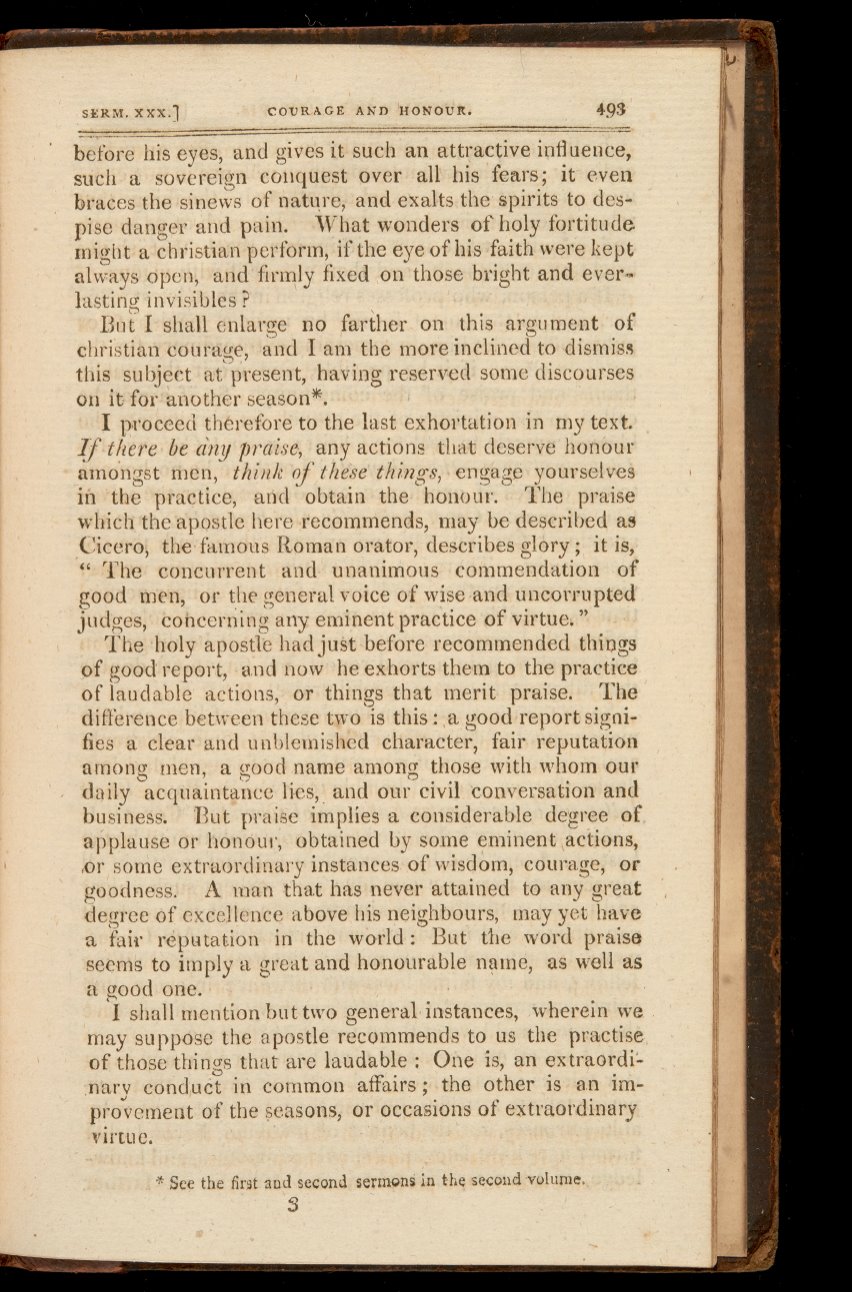

SERM.
XXX.]
.COURAGE AND 'HONOÚR.
493
before
his eyes,
and
gives
it
such an
attractive
influence,
such
a
sovereign
conquest over
all
his
fears;
it
even
braces
the
sinews
of
nature, and exalts the spirits
to des-
pise
danger and pain.
What
wonders
of
holy
fortitude
might a
christian
perform,
if
the
eye
of
his
faith were
kept
always
open,
and
firmly fixed
on those
bright
and ever-
lasting
invisibles
?
But I
shall enlarge no
farther
on this
argument
of
Christian
courage, and
I
am
the more inclined
to dismiss
.
this
subject
at
present, having reserved
some
discourses
on
it
for
another
season
*.
I
proceed therefore
to the
last exhortation
in my
text.
If
there
be
tiny
praise,
any actions
that
deserve
honour
amongst
men,
think
of
these
things,.
engage yourselves
in the practice,
and obtain the honour. The praise
which the apostle here recommends, may be
described
as
Cicero;
the
famous
Roman orator, describes
glory
;
it
is,
"
The concurrent
and unanimous commendation
of
good
men,
or the
general
voice
of
wise
and
uncorrupted
judges, concerning
any
eminent practice
of virtue:"
The
holy
apostle had
just
before recommended things
of
good
report,
and
now he
exhorts them
to
the practice
of
laudable actions, or
things
that
merit
praise.
The
difference between these
two
is
this
:,a
good
report
signi-
fies
a clear
and unblemished character,
fair
reputation
among
men, a
good name among those with whom
our
daily acquaintance
lies,
and our
civil
conversation and
business.
But praise
implies a
considerable
degree
of,
applause
or
honour, obtained
by
some
eminent
,actions,
or
some
extraordinary
instances
of
wisdom,
courage,
or
goodness.
A
man
that
has never
attained
to any
great
degree of
excellence
above
his
neighbours,
may
yet have
a
fair
reputation
in
the world
:
But the word praise
seems to imply a
great
and honourable
name, as
well
as
a
good one.
I
shall mention
but
two
general
instances, wherein
we
may
suppose
the
apostle recommends to
us
the practise,
of
those
things
that
are
laudable
:
One
is,
an extraordi=
.nary
conduct
in
common affairs
;
the
other
is
an
im-
provement
of
the seasons,
or
occasions
of extraordinary
virtue.
* See
the
first
and
second sermons in
the
second volume.
s

















